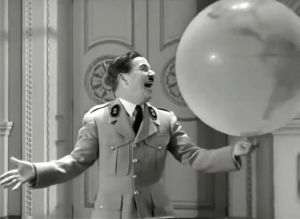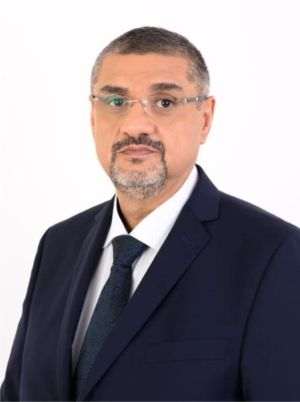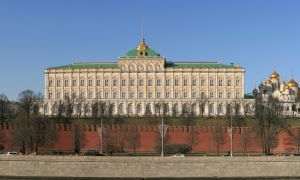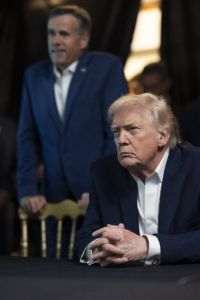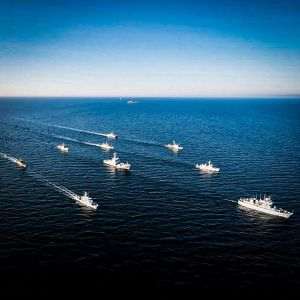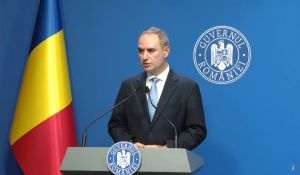The first round of the presidential election showed once again what we have known for 30 years: nothing changes! Logic says that as long as we had no debates between the main candidates, it follows that people didn't cast their votes based on the candidates' platform, and that there is no idea that made its way into the public space from any of them except through interviews.
Moreover, all presidential candidates consider that as president they run Romania. That is incorrect. The president's constitutional powers do not grant such abilities. It is not the president who runs Romania, the president cannot change anything, but other constitutional authorities are entitled to do so, namely the Parliament and the Government, but they are normally subordinated to the Sovereign, which is the people. It's called democracy.
The former president Traian Basescu is also in error, in his claim that last Sunday's vote was one for the future of our children. We are talking about a misconception which is being rebuffed by the almost 52% of voters who decided not to go to the polls. Because they do not think that the president of the country can decide the future of their children and believe that the occupant of the Cotroceni armchair, no matter who it's going to be, cannot change anything.
The results of Sunday's election were predictable, considering what happened in the European Parliament elections and the May 26th referendum. With a small exception - the decline of USR candidate Dan Barna, who showed, both in the pre-campaign and in the electoral campaign itself, how one can sabotage themselves so completely.
According to the Central Electoral Bureau, at the first round of the presidential elections, 47.77% of the citizens went to the polls, i.e. 8,683,688 voters. From the data presented by the Central Electoral Bureau, the ranking is as follows:
1. Klaus Iohannis - 36.91%
2. Viorica Dăncilă - 23.45%
3. Dan Barna - 14.19%
4. Mircea Diaconu - 9.17%
5. Theodor Paleologu - 5.69%
6. Kelemen Hunor - 4.13%
7. Ramona Ioana Bruynseels - 2.70%
8. Alexandru Cumpănaşu - 1.47%
9. Viorel Cataramă - 0.54%
10. Bogdan Stanoevici - 0.42%
11. Cătălin Ivan - 0.36%
12. Ninel Peia - 0.33%
13. Sebastian Popescu - 0.33%
14. John-Ion Banu - 0.30%
The incumbent president, Klaus Iohannis, won over one million votes more than the PSD candidate, Viorica Dăncilă, according to the data of the Permanent Electoral Authority - 3,132,888, versus 2,033,616 votes.
That number needs to be supplemented by the over 330,000 votes that Iohannis received from the Romanian citizens who voted abroad, that is, over 53% of the total valid options expressed by the diaspora in the 835 polling stations.
This year, due to the extension of the voting period to three days for the Romanian citizens from the Diaspora and the doubling of the number of polling stations abroad, unlike the elections for the European Parliament, the largest presence was registered abroad. According to the data provided by the Ministry of Foreign Affairs, in the three voting days, 650,159 Romanian citizens voted at the 835 polling stations organized abroad. To these votes are added the over 21,000 votes sent by mail.
After the result of the first round, it can be said that arithmetic is on the side of President Klaus Iohannis for the second round, as long as Kelemen Hunor, Dan Barna and Theodor Paleologu have announced they support him. Adding their percentages to the score obtained by Klaus Iohannis, it turns out that in the second round of elections, the current president should get 60.92% of the total valid votes cast and get a second term.
He may also get part of the voters of Mircea Diaconu, who are members or supporters of ALDE - the political formation whose head is Călin Popescu Tariceanu.
What is certain is that the figures are on the side of Iohannis, much to the misfortune of Viorica Dăncilă, who has nowhere to get votes from, except for the 1% or 3% satellites that competed in the first round.
Under these circumstances, the joy expressed by Viorica Dăncilă after the first round seems difficult to understand. Basically, her great victory is that she was not defeated by Dan Barna or Mircea Diaconu. Because compared to Iohannis, with or without an electoral debate, Dăncilă looks like a sparring partner with no chance to score any points, not even for artistic impression.
• Operation "Bus", a failure for the USR candidate
The beam in the eye of the USR proved to be precisely Dan Barna, the head of the party and candidate in the presidential elections. Barna "achieved" the negative performance of losing, in just five months from the European Parliament elections, 800.000 votes that the USR-PLUS 2020 Alliance had. With only 1,196,173 votes in the country and more than 182,000 abroad, Barna got nearly 800,000 fewer votes than Viorica Dăncilă and failed to get to the second round of the presidential elections. Had the USR not lost those votes, it would have overtaken Dăncilă and we would have had an interesting match in the second round.
Barna did not seem to be affected by the loss of the 800,000 votes and, yesterday, he gave an explanation which may have been logical for him, but not for other USR leaders: "I do not think we lost those votes compared to the number we got in the elections for the European Parliament. Many of the 800,000 extra voters who trusted us on May 26th are Klaus Iohannis voters who felt that a more dynamic and active party than the PNL was needed. "
When asked what he thought was the mistake of his electoral campaign, Dan Barna said: "Buses move too slowly, because of the lack of infrastructure in Romania, the journey from one county to another took a long time. Maybe I could have done three counties a day, instead of just two, if we had highways. "
Aside from that, the USR candidate stated that the failure to take part in the government or the delaying of showing support for the Orban government may have had a negative effect, but in Dan Barna's opinion, that effect was minimal.
Basically, the co-president of the 2020 USR PLUS Alliance yesterday failed to explain plausibly why he ranked the lowest in the pre-campaign and election campaign and why he failed to convince even the Romanian citizens of the diaspora to give him at least as many votes as they gave Klaus Iohannis, if not more. Barna has failed to explain why he came in second in the Capital, seven percent behind Klaus Iohannis, although the USR PLUS Alliance on May 26 won the majority of votes in Bucharest.
Therefore, several leaders, of which we list Cosette Chichirau and Ion Stelian, thought that Barna is the main culprit for failing to make the second round. Cosette Chichirau said that since Barna's campaign focused only on the PSD, without criticizing Iohannis' term, he could not get extra votes and that the way the president behaved in the negotiations on supporting the Orban government. USR Vice-President Ion Stelian said yesterday that refusing to join the PNL government, was one of the reasons why many of the voters of the party turned to Klaus Iohannis and did not vote for Dan Barna.


